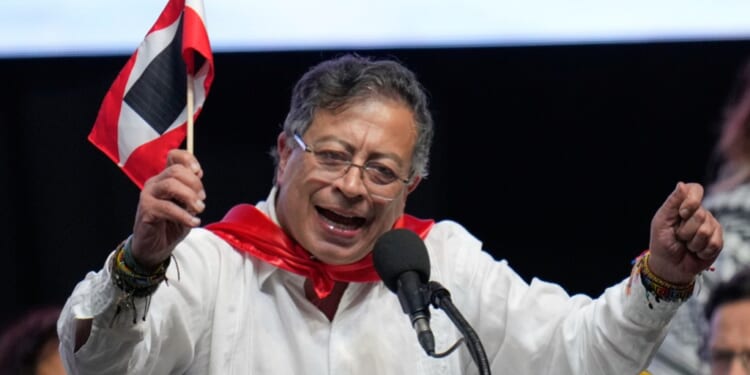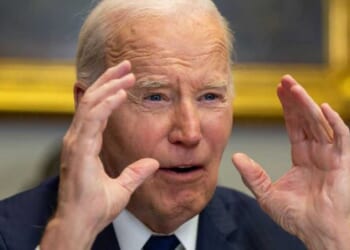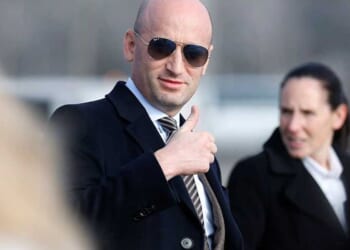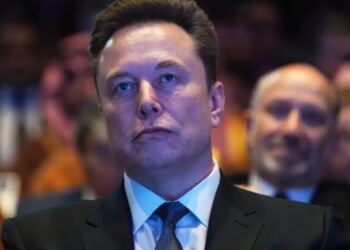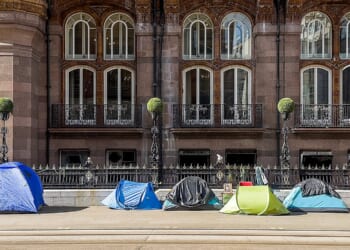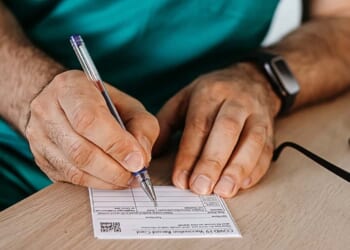President Donald Trump sanctioned Colombian President Gustavo Petro on Friday in a drastic escalation of their feud.
Tensions had been rising for months over Petro and Trump’s major divergence in approach around the War on Drugs. Several hostile moves from each side culminated in the U.S. sanctioning the head of what was, in previous years, one of the United States’s closest allies in the War on Drugs.
“Since President Gustavo Petro came to power, cocaine production in Colombia has exploded to the highest rate in decades, flooding the United States and poisoning Americans,” Treasury Secretary Scott Bessent said in a statement. “President Petro has allowed drug cartels to flourish and refused to stop this activity. Today, President Trump is taking strong action to protect our nation and make clear that we will not tolerate the trafficking of drugs into our nation.”
When reached for comment, the State Department directed the Washington Examiner to a statement from Principal Deputy Spokesperson Tommy Pigott, who maintained that the sanctioning of Petro wouldn’t affect the country’s “steadfast” support for Colombian security forces, its justice sector, and departmental and municipal officials, with whom the State Department continues to partner to combat drug trafficking.
“The United States will not turn a blind eye to Petro’s appeasement and emboldening of narco-terrorists. We are committed to bringing terrorists and drug traffickers to justice and preventing deadly illegal drugs from entering our country. There must be no impunity for drug traffickers or acts of terrorism or violence by criminal armed groups,” he said.
In a separate statement on X, Pigott said the U.S. would also be slashing assistance to Colombia.
In a press release, the Department of the Treasury outlined the United States’s long list of grievances against Petro, describing him as a “former guerrilla member” who has “provided narco-terrorist organizations with benefits under the auspices of his ‘total peace’ plan.”
It blamed his “erratic behavior” for driving Colombia away from its longtime partners, highlighting an incident in 2024 when he shared confidential information obtained “via secure anti-money laundering communication channels, threatening the integrity of the international financial system and leading to the suspension of Colombia’s Financial Intelligence Unit from The Egmont Group.”
The statement also claimed Petro had “allied himself with the narco-terrorist regime of Nicolas Maduro Moros and the Cartel de Los Soles.”
The Trump administration sanctioned several members of Petro’s family and other close associates, including the first lady of Colombia.
Last month, the Trump administration added Colombia to a list of countries failing to cooperate in the War on Drugs for the first time in nearly 30 years.
“The failure of Colombia to meet its drug control obligations over the past year rests solely with its political leadership,” Trump said in a presidential determination, slamming Petro’s government for not decreasing drug production and criticizing his “failed attempts to seek accommodations with narco-terrorist groups.”
Colombia now produces six times as much cocaine as it did in 1993, the height of the U.S.’s public interest in the drug production of the country, when infamous drug lord Pablo Escobar was killed. The country now surpasses the cocaine production of South American countries Peru and Bolivia combined. It provides 90% of the cocaine sold in the U.S. every year, according to the Associated Press.
The United Nations found that cocaine cultivation in Colombia increased every year from 2013 to 2023. This includes massive increases, such as a 40% increase from 2020 to 2021 and 53% increase from 2022 to 2023. It grew again 10% last year, according to Bloomberg.
Petro’s bombastic personality hasn’t helped with the U.S.’s skeptical perception of him. In a televised press conference, Petro complained that the country’s problems with drugs were the U.S.’s fault.
“What we have been doing is not really relevant to the Colombian people,” he said of Colombia’s anti-drug efforts. “It’s to stop North American society from smearing its nose” in cocaine.
US ADDS COLOMBIA TO LIST OF NATIONS FAILING TO COOPERATE IN DRUG WAR FOR FIRST TIME IN DECADES
The Colombian president is known for his controversial views on cocaine, suggesting in February that cocaine is no worse than whiskey.
“Cocaine is illegal because it is made in Latin America, not because it is worse than whiskey,” Petro said. “Scientists have analyzed this — cocaine is not worse than whiskey.”

